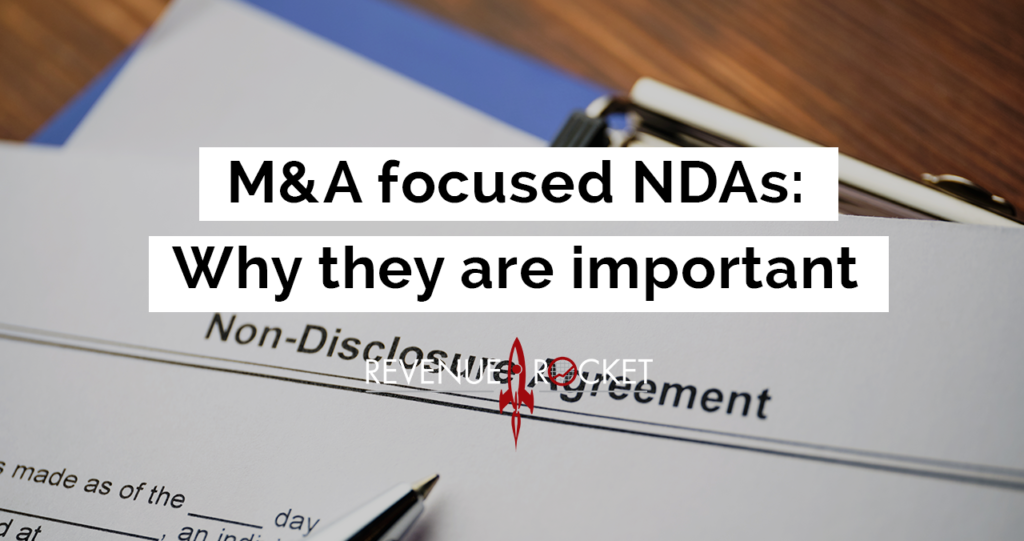06 Apr M&A focused NDAs: Why they are important
We often start our business meetings with the proverbial “do we have an NDA in place” but when it comes to having discussions surrounding potential business combinations it goes beyond sharing trade secrets. It can cost you dearly to haphazardly ignore this critical step. In this episode, we will discuss the fundamental reasons for having a special purpose NDA in place and what should be included in the agreement to properly protect all parties.
Let’s talk about the importance of having an NDA prior to engaging in M&A based discussions:
- Selling can cause concern for customers
- Wondering where the business will end up
- Often leads to shopping for a known competitor vs waiting to see what happens
- Leads to concern as to viability as some exits are based on distressed circumstances
- Word travels fast and employees may be the next thing looking for a new home
- Noone likes unknowns
- Talent leaving is a sure sign of challenges
- Buyers want the talent (usually)
- Competitive buyers – it’s common for sellers to entertain suitors from the same industry and those suitors all know each other. Maintaining confidentiality will eliminate offline / competitive coercion from taking place.
- Keeping your motives and performance confidential is paramount to running / having a clean, predictable process.
What about the information in the data room? How can it remain confidential and not disclosed to third parties?
- We often get reservations from sellers that suitors / buyers will have access and potentially documented information such as customer and product information after a deal fails or is not solicited. These are real risks
- We recommend using a platform for data room access that can restrict downloading and track access/user engagement. This is added security and tracking should anything end up in the wrong hands
- Limit your sharing to themes and macro level data till you are in due diligence
- Avoid customer lists in the data room. Instead share customer profiles and economics while not disclosing the identity
Keep employees on both sides at arms length. You know the saying “loose lips sink ships”…
- The more individuals that are involved the more likely confidential information will leak out of the process.
- Employees often don’t sign NDAs and have limited experience with M&A. Leave them out of the process till absolutely necessary
- Leverage an advisor like Revenue Rocket to solicit suitors and prepare anonymized collateral around the offering. This prevents the need for involving departments ahead of need. (marketing, sales, engineering….)
If either party is publicly traded the implication of leaked information increases dramatically.
- Either buyers or sellers must disclose to the exchange a material change in control or financial condition within 4 days via a form-8k.
- If buyers or sellers are not close to definitive agreements, leaked information almost always will stall or kill a deal as the disclosing party is not prepared to announce to the shareholders their intentions.
- Officers & Directors of public companies need to avoid these exposures due to personal liability and risk.
So in summary the need for NDA’s are critical and the ways they are beneficial / required are endless. When working with your advisor or managing a deal on your own be sure to protect your confidential information BEFORE engaging in any discussions.
For more information on preparing for a transaction check out our available resources at revenuerocket.com


